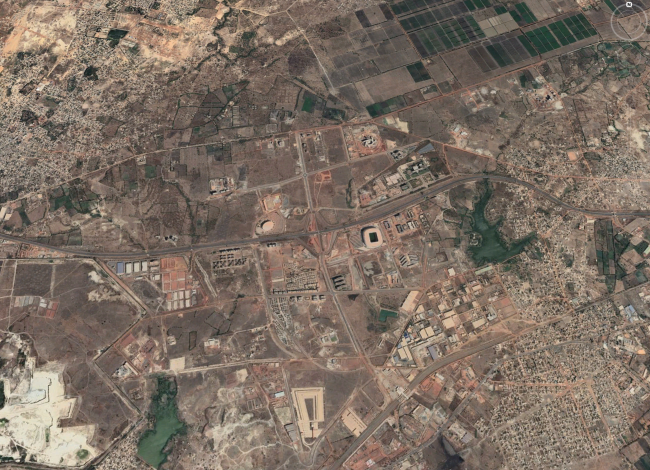City Diplomacy in Africa. The role of municipal actors in global policies and geopolitics

Practical information
Across the globe, mayors, city managers and leaders of decentralized governmental institutions are increasingly contributing in international policy making and geopolitics. In Africa, too, cities have become players on the international policy and diplomatic scenes.

The event will take place in English only in Nairobi, Kenya.
French Institute for Research in Africa (Ifra), Laikipia Road Kileleshwa 58480-00200, Nairobi, Kenya
This conference aims to take stock of ongoing debates and initiatives about city diplomacy, especially in Eastern Africa. Based on a multi-stakeholder approach, it will bring together experts from Africa and Europe involved in partnerships at the municipal and decentralized levels to identify challenges of city diplomacy and concrete results of this action. Specific attention will be paid to empirical research and data on existing forms of city diplomacy and their results. Emphasis will be put on the contributions of young scholars, whose research is dedicated to the above-mentioned challenges and opportunities of city diplomacy.
The French Institute of International Relations (Ifri), the United Nations Human Settlements Programme (UN Habitat) and United Cities and Local Governments of Africa (UCLG Africa) are co-organizing this conference on June 20 and 21, 2024. This event marks the end of the second year of the “Governing Urban Transition in Africa” research program, coordinated by Ifri.
PROGRAM
Day 1 : "The case for City Diplomacy"
Climate setting interview: Demystifying City Diplomacy
Moderator: Katerina Bezgachina, Head of Communication, UN-Habitat
Speakers:
- Sina Schlimmer, Head of the “Governing Urban Transitions in Africa” program, Ifri
- Cathy Kerubo, Senior Manager, C40 Africa
Official Opening and Keynote address
- Clélia Coret, Director, IFRA Nairobi
- Alain Antil, Director of the sub-Saharan Africa Center, Ifri
- Rahmatouca Sow Dieye, Advisor for Political Affairs and International Relations, UCLG Africa
- Oumar Sylla, Head of Regional Office for Africa, UN-Habitat
- Johnson Sakaja, Governor, Nairobi County (represented)
Session n°1: Leveraging diplomacy in fast growing cities: actors and partnerships
The aim of this session is to discuss how city diplomacy concretely materializes. What actors (municipal, local government, civil society, private, etc.) are involved, which forms of partnership are built and how do they contribute to and (re)shape international relations? This session will particularly focus on the activity of African intermediate cities and how they use international partnerships to gain visibility, as well as the synergies between state and city diplomacy.
Moderator : Winnie Mitullah, Professor, University of Nairobi
Speakers:
- Joseph Akech Kotonya, Former Mayor of Nairobi
- Lorenzo Kihlgren Grandi, Director, City Diplomacy Lab
- Victor Jaja, Alternate Permanent Representative to UN-Habitat, Nigerian embassy to Kenya
Session n°2: Conflict, instability & migration – can cities further diplomatic efforts when States fail?
- Jim van Moorsel, Research Coordinator, Mixed Migration Center
- Hervé Nicolle, Founder & CEO, Samuel Hall
- Francis Onditi, Head of Department, School of International Relations and Diplomacy, Raira University
Day 2: "City diplomacy: way forward"
Session n°3: Cities at the center stage of geopolitical competition: the diversification of partnerships
As the world is experiencing major geopolitical shifts, African countries are diversifying their partnerships. New alliances with emerging partners such as China, Turkey and Russia can also be observed on the city and local government levels. Little is known about these forms of subnational cooperation, in which fields and through which forms does this cooperation take place? Do cities and local governments align with the diplomatic directions of the central government, or do they reflect different geopolitical strategies?
Moderator: Sina Schlimmer, Head of the “Governing Urban Transitions in Africa” program, Ifri
Speakers:
- Rahmatouca Sow Dieye, Advisor for Political Affairs and International Relations, UCLG Africa
- Brendon Novel, Researcher, University of Montreal
- Alfred Omenya, CEO, Eco-build Africa & Professor, University of Canberra
Session n°4: How to finance city diplomacy and local government partnerships?
This concluding session will summarize the main outcomes of the conference and provide an outlook on the next steps to undertake to facilitate city and local government partnerships in different policy areas. Most importantly, it will address the challenges of financing city and local government partnerships and how city diplomacy itself can contribute to enhancing local revenue generation.
Moderator: Humphrey Otieno, Nairobi City County
Speakers:
- Melissa Kerim-Dikeni, Global Fund For Cities Development
- Remy Sietchiping, Chief of Policy, Legislation and Governance Section within the Urban Practices Branch, UN-Habitat
- Gautier Sing-Kohler, Senior urban specialist, AFD
The event will take place in Nairobi, in English only.
In association with:


Find out more
Decentralization and Its Effects on Urban Governance in Africa
The importance of African cities as economic, political, and social actors is increasing. While Africa used to be perceived as a predominantly rural continent, it is estimated that by 2050, the urban population of the continent will increase by around 900 million people, nearly tripling.[1]
The Politics of New Cities: Diversification of Actors and Recentralization of State Power in the Case of Diamniadio
The construction of new cities on the African continent is in vogue. From multifunctional urban hubs to eco-districts, the images that accompany the announcement of these projects promote an African urban future based on modernity and technology.
Land Governance in the Outskirts of African Cities. Socio-Economic Challenges of Growing Peri-Urban Land Markets
Between 2020 and 2050, Africa’s population is expected to double, and the continent will be home to 2.5 billion people. Almost half of this population will be living in urban agglomerations. Metropolitan cities, such as Lagos, Nairobi, Dar es Salaam or Abidjan will host several tens of millions of urban dwellers. Peri-urban areas are most affected by the cities’ expansion and undergo important social, political, and economic transformations.







